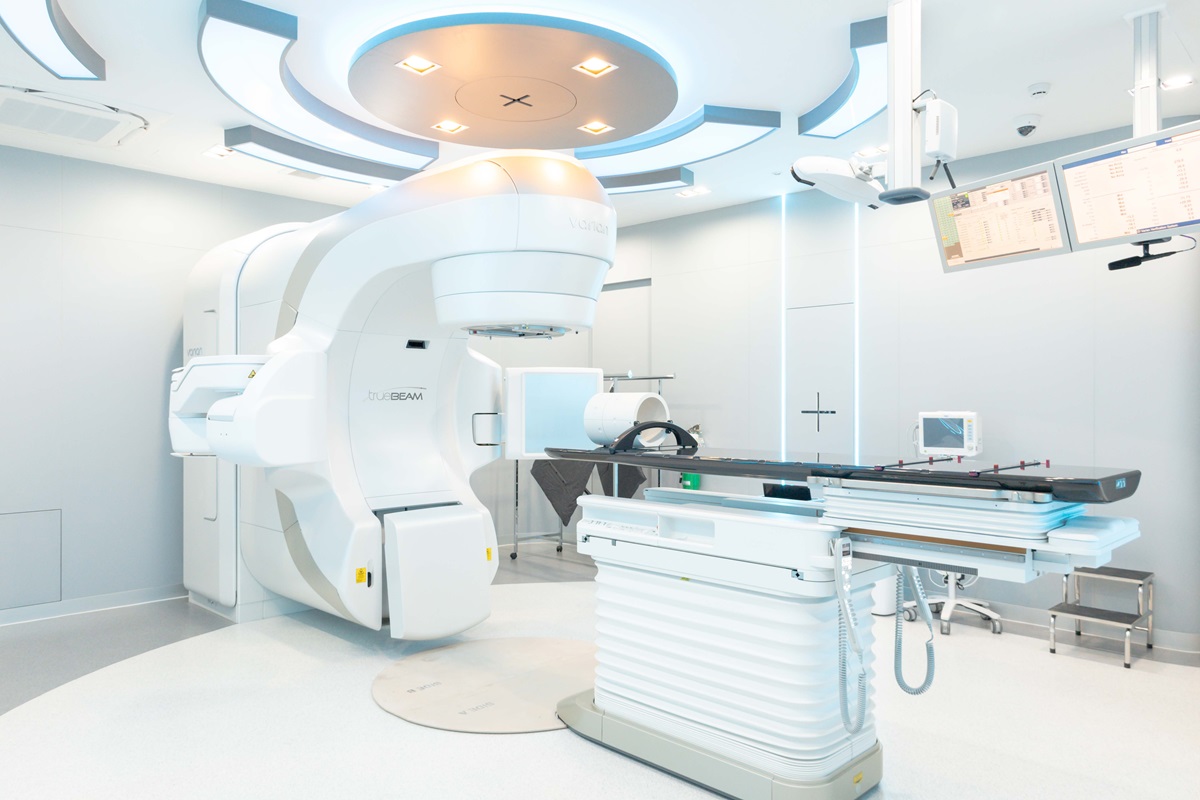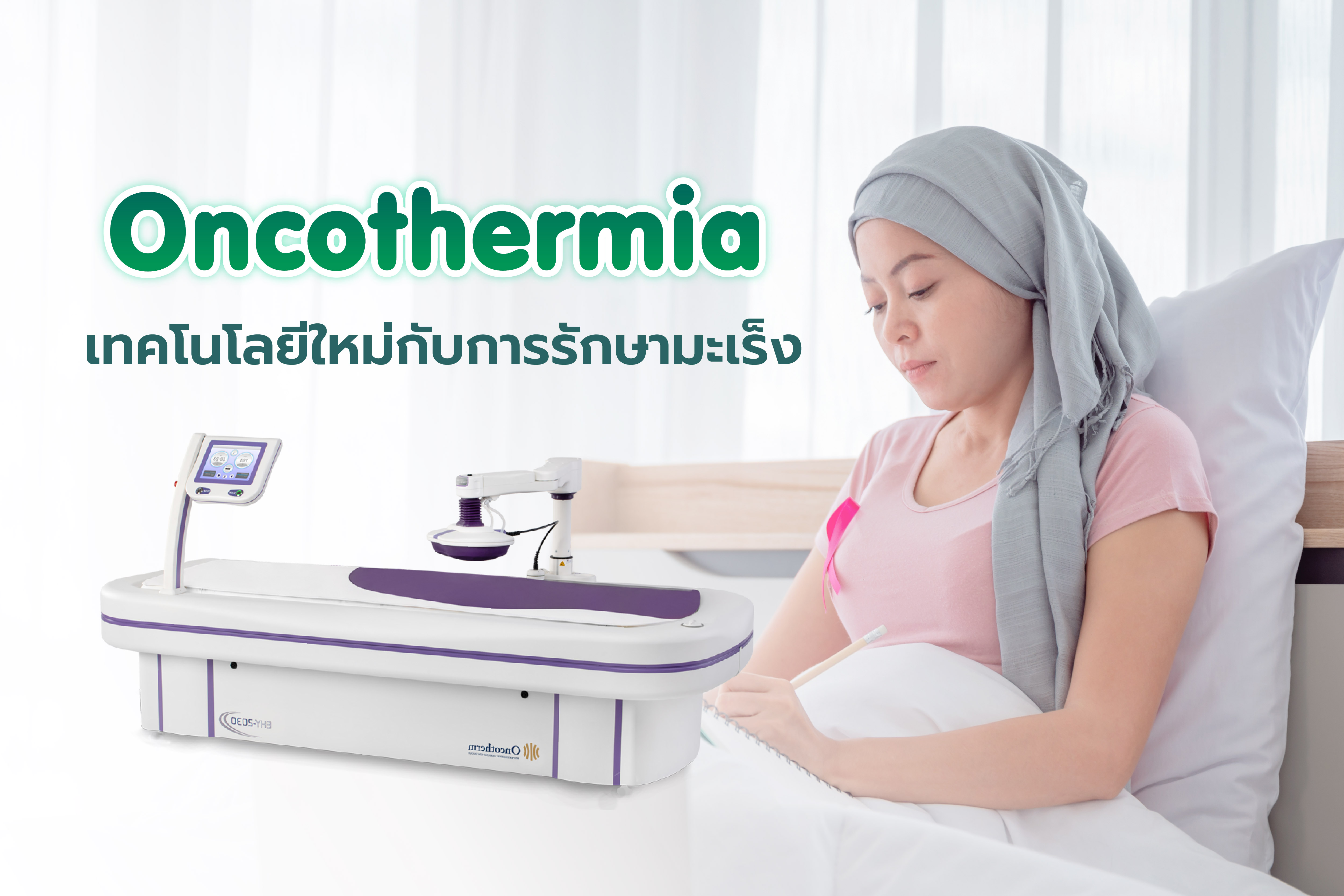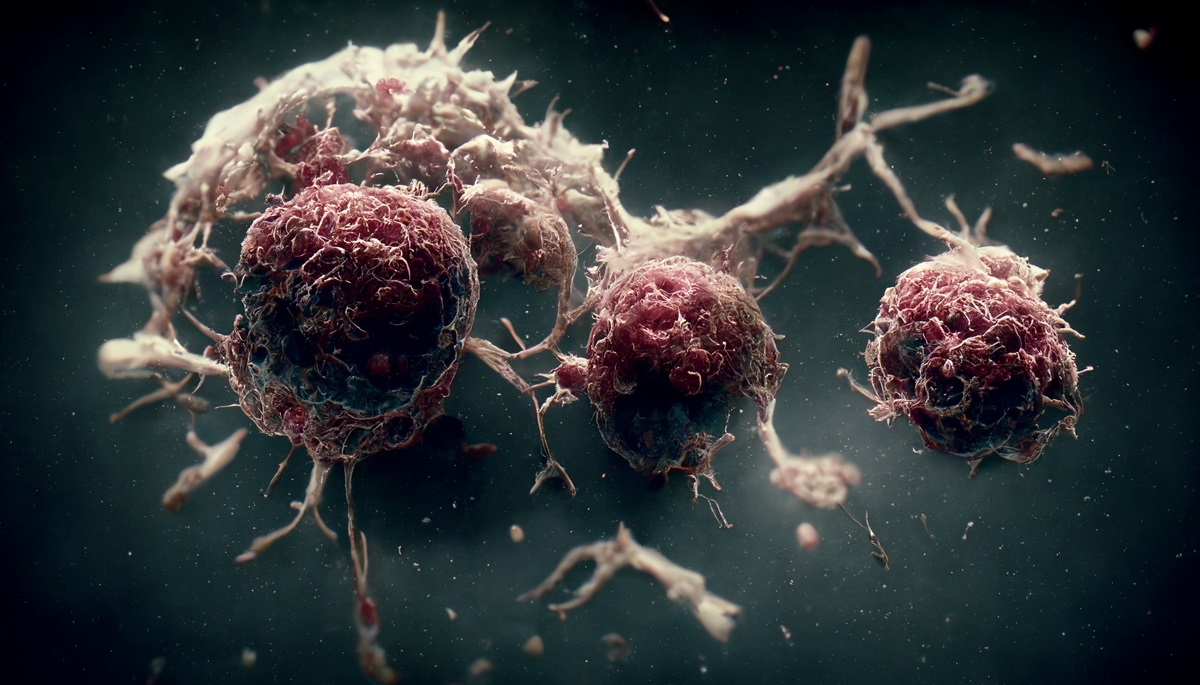A treatment option to fight cancer with precision
Radiation therapy is the use of high-energy radiation waves targeted at cancer cells to inhibit their growth and destroy them. This prevents the cells from dividing, ultimately leading to their gradual death. The dosage of radiation depends on the type and stage of cancer.
Two Main Types of Radiation Therapy:
– External Beam Radiotherapy
Radiation is delivered from a machine outside the body, precisely targeting the cancerous area. The intensity can be adjusted according to the tumor’s size, focusing the radiation on the cancer cells while minimizing exposure to surrounding healthy tissues.
– Brachytherapy (Internal Radiation)
This involves placing radioactive material directly inside or near the tumor, allowing concentrated radiation to destroy cancer cells while reducing harm to nearby organs.
Areas Where Radiation Therapy Can Be Used:
– Head and Neck: Brain cancer, nasopharyngeal and sinus cancers, oral cancers, throat cancer, laryngeal cancer
– Chest: Lung cancer, esophageal cancer, lymphoma, breast cancer
– Abdomen: Stomach cancer, liver cancer, pancreatic cancer, kidney cancer, abdominal lymphomas
– Pelvis: Bladder cancer, colon cancer, uterine cancer, cervical cancer
Treatment Process:
Before beginning radiation therapy, patients will be evaluated and treatment will be planned by a specialist physician. It’s important that patients:
– Eat a balanced diet (all 5 food groups)
– Get at least 8 hours of rest per day
– Avoid exposure to toxins such as pollution or dust
– Maintain personal hygiene consistently
During treatment, patients should meet with their doctor weekly to monitor:
– Treatment response
– Side effects
– Self-care practices
Possible Side Effects (Vary depending on the radiation area)
– Redness, dryness, peeling, or darkening of the skin at the treated area
– Fatigue
– Nausea, loss of appetite
– Hair loss (only in the treated area)
– Localized symptoms (e.g., dry mouth, hoarseness, diarrhea)
After Completing Treatment:
Patients must strictly follow medical advice and attend all follow-up appointments. The frequency of follow-ups will depend on the cancer type and treatment stage.
Summary:
Radiation therapy is one of the main treatments for cancer, often used in combination with surgery and chemotherapy. Its advantages include precise targeting and control of cancer growth. Side effects generally improve after treatment ends. Proper self-care and consistent follow-up play a key role in achieving successful outcomes.
แพ็กเกจแนะนำ
บทความสุขภาพอื่นๆ
VDO ความรู้สุขภาพ
Article by
Article by

Dr.Asawadech Sanbua
Spacialty : Radiotherapy and Oncology
For further inquiries, please contact
New Frontier Cancer Center,11 Floor
World Medical Hospital (WMC)
Tel 02-836-9999









